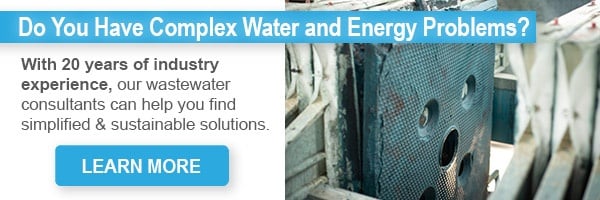One of the primary responsibilities of a corrugated plant manager is to provide employees with the equipment and knowledge to do their jobs effectively and efficiently.
When the staff is well-trained and knowledgeable about equipment, procedures, safety protocols, and operations, maintenance needs decrease and productivity increases. Training is necessary to comply with corrugated industry regulations, minimize downtime, and maintain steady production rates (or even increase them).
There’s a misconception that corrugated industry training and retraining on chemical processes will be a bear for all involved. The plant manager’s role is not just to check off boxes, but also to get buy-in from all employees. Part of that responsibility is bringing in the right training -- and trainers.
Here’s a guide to making training “stick” for all plant employees:
Corrugated Industry Boiler Training Courses: What to Expect
Any plant employee is happier and more effective when working in a safe and efficient environment. That employee is also more likely to stick around when you invest in their future and well-being.
Corrugated boiler training needs to include information about:
- The importance of incoming water quality
- How to safely apply and test for boiler treatment chemicals
- How to save water and energy
Initial training is important, but you shouldn’t forget about ongoing training.
Initial and ongoing trainings are divided into two parts:
- Boiler water treatment training -- how to test for chemical levels daily
- General boiler system operation training.
A huge component of any on-the-job training should be explaining the “why” behind key processes -- whether that’s documentation or equipment operation. Helping maintenance and production staff understand the implications of following best practices will improve buy-in and keep the plant running smoothly.
As for the “what,” training typically covers the fundamentals of boiler system equipment, startup, and recovery, along with common compliance and safety routines. Outside the day-to-day, the trainer should address emergency scenarios so all responsible parties can act swiftly and responsibly until help arrives.
In assessing your processes, the boiler operation trainer may also:
- Take pictures of all relevant equipment
- Compile operating and maintenance manuals in a central place
- Address recent changes in regulations
Let’s not forget the “who.” We know industrial boiler maintenance techs have an especially large stake because they’re liable for 40 hours a week. But corrugated boiler courses are valuable for operators, managers, and regional and corporate engineers. Basically, if you’re on the fence about whether to include someone, include them.
Finding Specific Corrugated Industry Training
Often, the vendor that sold a boiler water treatment chemical or equipment to your facility is the one who can best train your staff. Either way, it’s the plant manager’s job to develop relationships with vendors that know the industry well and can provide initial and ongoing training. This vendor can resolve discrepancies in practices before they become major problems, and teach employees to be proactive with industrial boiler troubleshooting techniques.
Above all else, the training vendor should have these qualities:
- Experience and knowledge specific to the corrugating industry
- Up to speed on new technologies that will increase production and profits
- Mastery of regulatory requirements and how to meet them
For example, the steam boiler is a critical piece of equipment in a corrugating plant, as it provides high-purity steam to the corrugator. The water used in the boiler must be treated with chemicals to protect the boiler and provide clean, dry steam to the corrugating process. If your industrial water treatment trainer is unfamiliar with corrugating plants, your operators may not be set up for successful production.
If the water treatment vendor is knowledgeable about the corrugating industry, there are other areas of the plant (i.e. the starch kitchen) where additional training on water quality can be beneficial. Often, the solution is a simple engineering or process change, without the need for added or alternative chemistry.
Your Next Steps as a Supervisor
A properly trained factory staff can be your greatest asset. Unprepared operators can be your biggest liability.
Training often means change, and change is difficult. Make sure to get staff buy-in by explaining the “why” behind the importance of water quality and clean, dry steam.
Lean toward a training course that includes both virtual and on-site teaching on an as-needed basis. This will make transition to a new treatment program much more seamless.
And most of all, work with a partner that understands the entire corrugating industry process and how it can be safer and more efficient.




